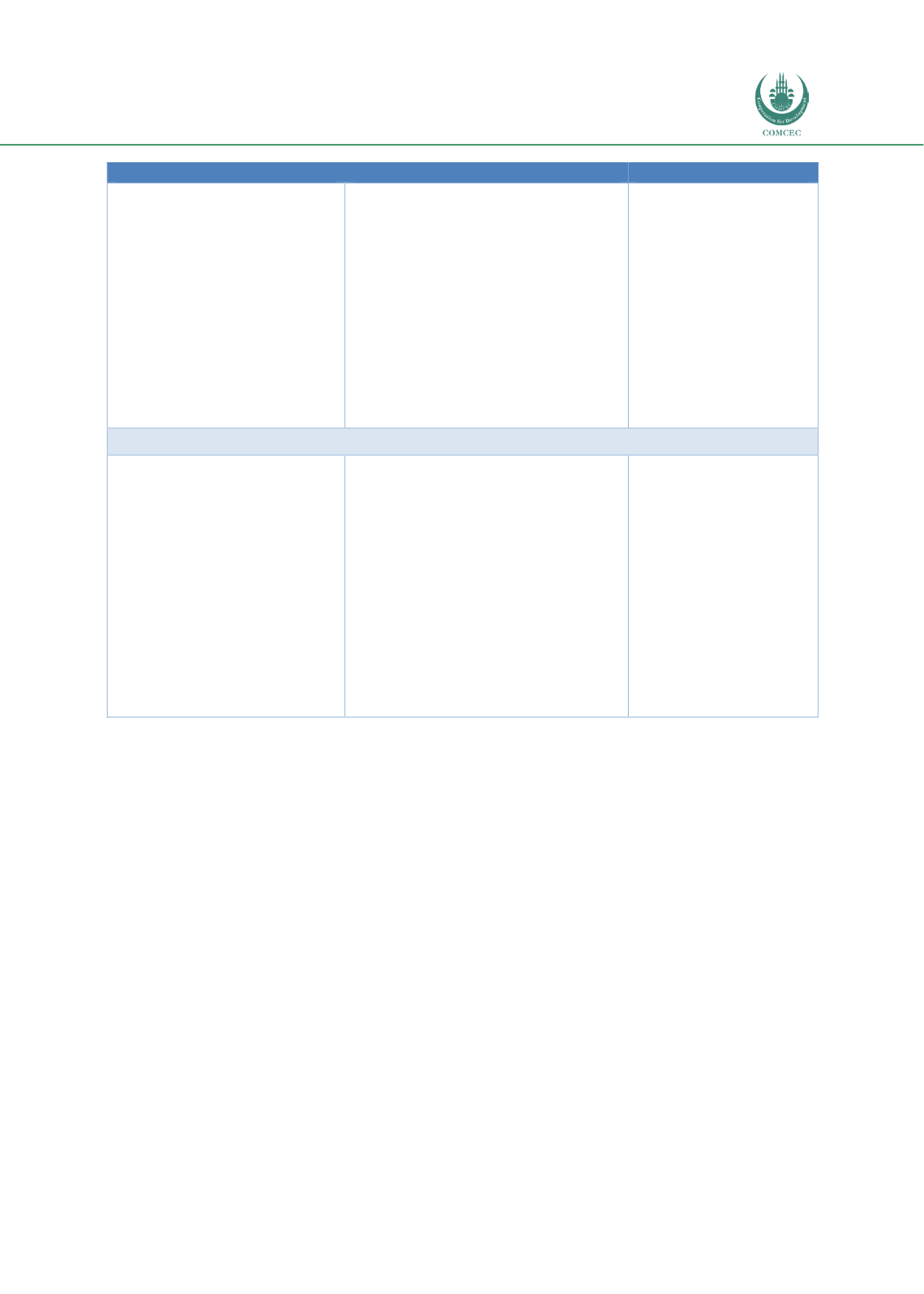

Infrastructure Financing through Islamic
Finance in the Islamic Countries
89
Issues
Recommendations
Implemented by
due to investments in long-term
projects) can be mitigated is to
develop a well-functioning
Islamic money market through
which Islamic banks can access
liquidity when needed.
The balance sheet structure of
life insurance and pension funds
supports investment in long-
term investments. However, the
Islamic nonbank financial
institutions sector in Indonesia
are relatively small.
incentives for Islamic banks to invest in
long-term illiquid assets.
Increase the shares of family takaful and
Islamic pension funds to increase the
role of Islamic finance in the
infrastructure sector.
Establish specialized Islamic funds and
platforms to increase investments in
infrastructure projects.
Islamic financial
institutions
Relevant ministries to
create the right legal and
regulatory framework
Market players
Islamic Capital Markets
Although Indonesia has used
sukuk to raise funds for the
infrastructure sector, there is
potential to expand it further.
Sukuk structures are complex
and new for many stakeholders.
Indonesia has issued retail sukuk
to tap into alternative sources of
funds which can be further
increased.
Develop market and infrastructure for
Islamic capital market/sukuk.
Issue more project sukuk.
Establish an institution that can advise
on the issuance of sukuk and develop
templates for the issuance of sukuk for
infrastructure projects.
Increase literacy of Islamic finance and
introduce efficient mechanisms for the
delivery and redemption of sukuk issues
to further encourage retail investors to
invest in infrastructure sector
Capital markets authority
Issuers (sovereign and
corporates)
The government linked
financial institution PT
SMI that also has a
Shariah unit
Capital markets authority
Issuers (sovereign and
corporate)
Financial institutions
















